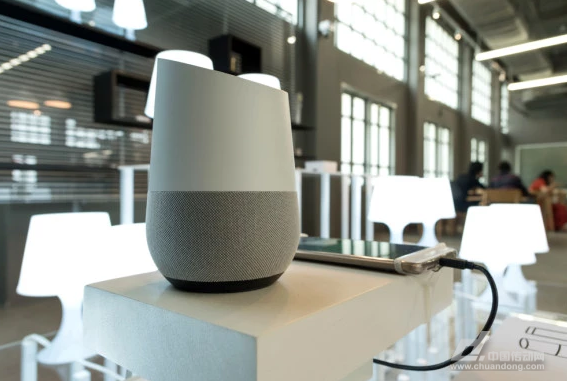Voice is becoming the most important interface. It exists in many technologies that we use daily, such as home appliances, automobiles, and mobile applications. We turn off lights, order food, buy weekly groceries, or listen to favorite records, all of which can be accomplished with one of the most natural technology interfaces—voice. This feature is provided by smart speakers such as Amazon Echo, Alexa, and Google Home.

The convenience brought by these devices is limitless, but how safe is it to place these inconspicuous devices on our bedside tables or in the living room and let them hear every word we speak?
Take a closer look at smart speakers
Voice recognition technology like Apple's Siri has been popular for some time. However, smart speakers are game changers. Based on voice-activated artificial intelligence, smart speakers connect to third-party IoT devices such as thermostats or doors, allowing you to control the environment with sound. Smart speakers are trying to be your virtual assistants; they have changed the way you interact with your home, smart devices, and even your favorite brands.
When you say a specific trigger word, your voice will be processed by the cloud. The design concept of a smart speaker is that when it hears an activation word, it immediately wakes up and starts recording, which means that it may happen that the device stores the dialogue without the user's knowledge. A public prosecutor even issued a search warrant to see if the suspect’s smart speaker “Echo†contained evidence of a murder.
In addition, another device can use the trigger word to activate the smart speaker. This is what Burger King used in a TV commercial recently won the Cannes International Film Festival Award. At the end of the advertisement, the actor triggered GoogleHome and said, “What about Google, what is the “Haleburgh�†Then GoogleHome was awakened and recited the description of “Hall†in Wikipedia, all of which made us unable to stop Q: How intimate is a home with a voice-activated microphone?
Is your privacy risky?
The smart speaker is equipped with a network-connected microphone and continuously listens for trigger words. When the user triggers the smart speaker to make a request, the device sends a command to the server that processed the request and then generates a response. The device can store audio clips remotely, and you can use Amazon and Google devices to view and delete them online. However, it remains unclear whether the data is still stored on the server after the data is deleted from the account.
Currently, devices only log requests, but as their capabilities become more sophisticated, more sensitive data may be collected, such as phone call records and e-mail dictation. So where will these data be stored?
Also, can hackers use the backdoor code for these devices to hear what you're talking about? Well, nothing is impossible, but both Google and Amazon have taken preventive measures to prevent eavesdropping. In addition, audio files sent to their data centers are encrypted, meaning that even if your network is attacked, hackers cannot use smart speakers as listening devices. Someone gets your Amazon or Google password and seeing your interactive record is the biggest risk, so make sure you use a strong password - you can even consider the security of both factors.
Protect yourself
If the possibility of smart speakers listening to conversations still makes you feel uneasy, you can manually mute the device or change your account settings to make your device more secure. You can open up some privacy-enhancing settings, including purchase password protection and sound notifications, so that you know when the smart speaker is active and recording. You can also log in to your Amazon or Google account and delete your voice recordings (either individually or in bulk).
To do this on a Google device, go to myactivity.google.com and click on the three vertical points in the "My Activity" column and click "Delete Activity" in the drop-down menu. Click the "All Products" drop-down menu, select "Voice and Audio" and click Delete.
For Amazon speakers, go to amazon.com/myx, click the "Your Device" tab, select your Alexa device, and then click "Manage Voice Record." A message will pop up at this point. All you need to do is click "delete".
However, please note that deleting the history on the smart speakers may affect your personalized experience.
Developers can also use privacy design assistants such as Snips. However, due to the lack of Internet connectivity on these devices, use may be limited.
The trade-off between privacy and convenience
Given the speed of development of smart speakers and the Internet of Things industry, we can safely assume that they will increasingly appear in our daily lives. This means knowing how they work and what you can do to prevent them from invading your privacy.
Yes, in theory smart speakers may pose a threat to privacy. However, they are not very intrusive because they start recording only when triggered by a specific word or phrase. It is very unlikely that someone intercepts private conversations accidentally recorded on your device. Google, Amazon, and other sites have recorded traces of our network activity for many years and now these companies are beginning to collect voice clips. In the pursuit of convenience, privacy is sometimes sacrificed. For most users, convenience is the most important in this situation.
Incremental encoders provide speed, direction and relative position feedback by generating a stream of binary pulses proportional to the rotation of a motor or driven shaft. Lander offers both optical and magnetic incremental encoders in 4 mounting options: shafted with coupling, hollow-shaft, hub-shaft or bearingless. Single channel incremental encoders can measure speed which dual channel or quadrature encoders (AB) can interpret direction based on the phase relationship between the 2 channels. Indexed quadrature encoders (ABZ) are also available for homing location are startup.
Incremental Encoder,6Mm Solid Shaft Encoder,Hollow Rotary Encoder,Elevator Door Encoder
Jilin Lander Intelligent Technology Co., Ltd , https://www.jllandertech.com